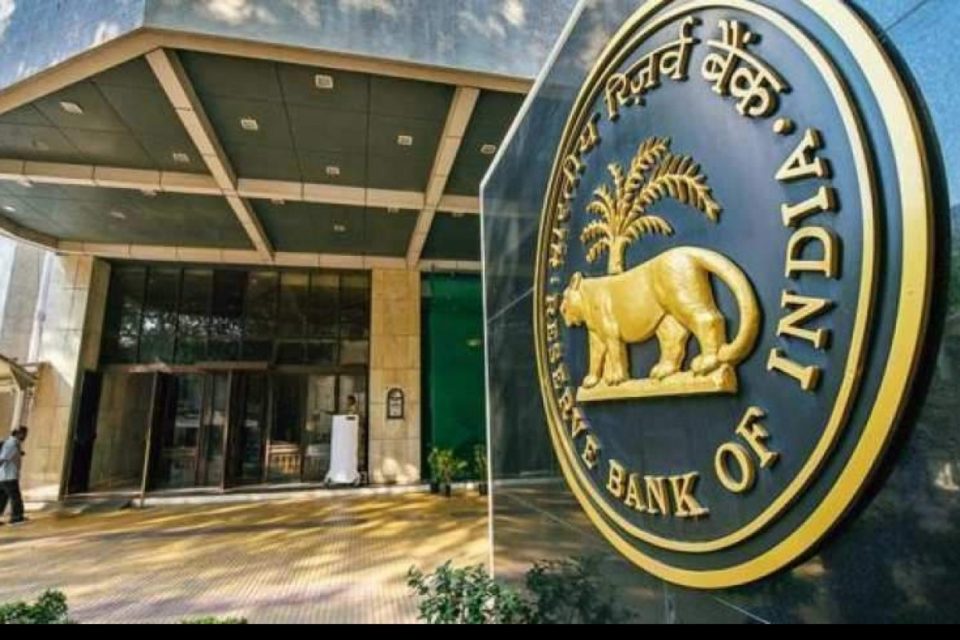Microfinance institutions (MFIs) expect to withstand financial risks due to COVID-19, building capital buffers and managing cash positions is required to secure balance sheets from disruptions, reports RBI monthly bulletin article.
Prepared by Snimardeep Singh of Department of Supervision, Reserve Bank of India, it said though COVID-19 causes new challenges and significant financial risks for the microfinance sector, it still allows an opportunity to build long-term resilience.
Further adding, “Going forward, building capital buffers and managing liquidity would be crucial for MFIs in fortifying their balance sheets against COVID-19 led disruptions,” it termed COVID-19 as the biggest tail risk event in a long time.
Following slowdowns in supply chain and business operations, the probability of loss of livelihoods and a consequent drop in household incomes is large.
“Non-banking financial company microfinance institutions (NBFC-MFIs), being specialised institutions extending collateral-free loans to low-income groups, are particularly exposed to credit risks in this scenario,” it said.
MFIs encounter liquidity risks following massive drops in repayment rates. Smaller NBFCs-MFIs are especially vulnerable to credit rating downgrades, preventing fresh capital and access liquidity. In order to sustain portfolio growth, fund sources require diversification.
The article discussed COVID-19’s affliction toward microfinance financially incoming terms and incentivising digitisation. MFI operational efficiency may significantly boost up by migrating loan collections to digital platforms, reducing event-based disruptions, it added. Data analytics may be leveraged to foretell portfolio behaviour, building risk models and customer-centric product design.
BEML Shares Soar 6% on Inking MoUs with Siemens and Dragflow SRL
Shares of BEML Ltd soared 6% on 13 March after the company announced signing Memorandum of Understandings (MoUs) with Siemens and Dragflow SRL. Italy Forge.
As a part of the agreement, Siemens and the company will explore opportunities in the railway industry.
In its regulatory filing, the company said, “BEML Limited and Siemens Limited, India, have signed a non-binding MoU to jointly explore opportunities in the semi-high-speed and suburban passenger train segments, as well as metro and commuter rail markets.”
In its MoU with Dragflow, both companies will strengthen indigenous dredging solutions.
Earlier in December, the company announced securing an order worth Rs 136 crore from the Ministry of Defence for High Mobility Vehicles (HMV) 8×8. These HMVs will be manufactured at the company’s state-of-the-art facilities and are engineered for exceptional reliability and versatility even in the toughest of conditions.
The vehicle boasts several advanced features, including an independent suspension system, a high-power air-cooled engine, a central tyre inflation system, an anti-lock braking system, and a backbone tube chassis design. These elements collectively enhance mobility, stability, and operational safety.
Designed to withstand extreme conditions, the HMV 8×8 operates efficiently in temperatures ranging from -20°C to +55°C and at altitudes of up to 5,000 meters.
Its modular architecture allows seamless integration of various superstructures without requiring special modifications, ensuring cost efficiency and high compatibility across BEML’s military vehicle lineup, from 4×4 to 12×12 configurations. This design approach simplifies maintenance and logistics, significantly improving operational efficiency for the armed forces.
At 3:30 pm, the shares of BEML closed 2.45% higher at Rs 2,551 on NSE.
Got BEML Ltd Questions? The Analyst is Ready.
Unlock profitable opportunities every day! Unicorn Signals provides actionable intraday trading signals for stocks and futures. Don’t miss out – download Unicorn Signals and start winning now!
Larsen and Toubro Shares Gain 1% on Order from Saudi Arabia

Shares of Larsen and Toubro (L&T) were trading in the green and 1% higher on Thursday, 13 March, after the company’s water and wastewater treatment business joint venture got a “major” order to construct a desalination facility in Saudi Arabia.
L&T classifies orders that are between Rs 2,500 crore and Rs 5,000 crore as “large.”
The L&T joint venture with Lantania of Spain signed a contract with ACWA Power, a major Middle Eastern developer, to build the Ras Mohaisen Desalination facility in Saudi Arabia.
The plant will reach a 300,000 cubic meter capacity per day. The scope of the project includes the design, procurement, construction, testing, and commissioning of a seawater reverse osmosis desalination plant.
It comprises 600,000 cubic meters of storage capacity for potable water, as well as automation and instrumentation systems, process units, pumping stations, intake and outfall facilities, electrical special facilities, and related works. A solar PV facility is also included in the project scope, it said.
The project will make drinking water available to the Makkah Al-Mukarramah and Al-Baha districts, benefiting one million people.
L&T continued by saying that this is the second recent desalination order that Saudi Arabia has given to them.
Last week, “large” orders were also acquired by the company’s power transmission and distribution division in India and other countries.
However, at 2:25 pm, the shares of Larsen and Toubro were trading 0.072% lower at Rs 3,191.35 on NSE.
Larsen and Toubro Ltd Insights? Let the Analyst Guide You.
Unlock profitable opportunities every day! Unicorn Signals provides actionable intraday trading signals for stocks and futures. Don’t miss out – download Unicorn Signals and start winning now!
VA Tech Wabag Shares Soar 2% on Rs 360 Crore Orders

Shares of Chennai-based VA Tech Wabag, a supplier of water treatment and desalination systems were trading 2% higher on 13 March after the company announced that they have secured orders totaling Rs 360 crore from Indian Oil Corporation and Gail (India).
The contract includes the Design, Build, and Operation (DBO) of a 450 m³/hr UF & RO-based Effluent Recycle Plant, a Zero Liquid Discharge (ZLD) Plant based on an evaporator, a new wastewater treatment plant, and the expansion of an existing wastewater treatment plant for the integrated petrochemical complex of GAIL (India) Ltd. in Pata, Uttar Pradesh for a total consideration of Rs 340 crore.
The project’s Engineering, Procurement, and Construction (EPC) phase must be finished in 24 months, and then Operation and Maintenance (O&M) must be finished in 6 months, according to this regulation.
VA Tech Wabag stated in an exchange filing that GAIL has designated Projects and Development India Limited (PDIL) as the Engineer-in-Charge for the project. The treated water from this facility will be repurposed as makeup water for the cooling tower.
Wabag has also been given a repeat operation and maintenance (O&M) order for Rs 20 crore by Indian Oil Corporation Ltd. (IOCL) to continue maintaining the Tertiary Treatment Reverse Osmosis (TTRO) Plant at the IOCL Panipat Refinery in Haryana for an additional three years.
WABAG has been responsible for the facility’s upkeep and management since it was put into service in 2006. Notably, this TTRO plant was designed, constructed, and put into operation by WABAG almost 20 years ago, making it the first industrial water recycling facility in the oil and gas sector in the country.
S Natrajan, Head-Sales & Marketing, India Cluster, said, “We are delighted to have secured these significant industrial water treatment orders and we sincerely thank GAIL and IOCL for their trust and confidence placed in us. These repeat orders serve as a powerful testament to the strength of our long-standing customer relationships, as well as to our technical expertise and capabilities. They further solidify our leadership position in the Oil and Gas sector, marking yet another important milestone in our journey.”
At 12:52 pm, the shares of VA Tech Wabag were trading 0.77% higher at Rs 1,334.35 on NSE.
Stay Ahead with VA Tech Wabag Ltd. Ask the Analyst.
Discover the next big investment! Unicorn Signals’ IPO screener helps you identify promising initial public offerings. Download Unicorn Signals and get ahead of the curve! Sign Up Now & Find Your Next IPO Gem!
Bharat Electronics Shares Surge 3% on IAF Order Worth Rs 2,463 Crore

Shares of Bharat Electronics Ltd (BEL) surged 3% on 13 March after the company announced securing an order from the Indian Air Force worth Rs 2,463 crore.
In its regulatory filing, the company said, “Bharat Electronics has signed a contract with the Ministry of Defence valued at Rs 2,463 crore (excluding taxes) for supply and services of Ashwini Radars.”
These fully indigenous AESA radars, developed in partnership with DRDO and BEL, have integrated IFF with electronic scanning in azimuth and elevation and are capable of 4D surveillance.
These mobile radars with advanced ECCM capabilities may be placed on any terrain and can automatically identify and follow aerial targets, including fighter planes and slow-moving objects, the statement said.
Accordingly, the company has now received orders worth Rs 17,030 crore for the current fiscal year.
On 10 March, the company got more contracts worth Rs 843 crore. These orders comprised, among other things, upgrades for radar, air traffic control and maritime systems, radio frequency searchers, electro-optic repair facilities, spare parts, and services.
Earlier, on 5 March, the board of directors declared the company’s interim dividend for the fiscal year 2024–2025, which is Rs 1.50 per equity share of Re 1 each (150%).
On 6 March, the company made new orders totalling Rs 577 crore for a range of products, such as sophisticated composite communication systems for submarines, airborne electronic warfare equipment, train communication systems, Doppler weather radar, radar upgrades, spare parts, and services.
At 12:23 pm, the shares of Bharat Electronics Ltd were trading 2.30% higher at Rs 283.20 on NSE.
Wondering About Bharat Electronics Ltd? The Analyst Has Answers.
The future of investing is here!
Unicorn Signals leverages advanced AI technology to provide you with powerful market predictions and actionable stock scans. Download the app todayand 10x your trading & investing journey!
Polycab India Shares Gain 2% on Major Order from BSNL

Shares of leading cables and wires manufacturer Polycab India were trading 2% higher on 13 March after the company announced that it had obtained an order from BSNL for around Rs 3,003 crore.
According to the exchange filing, Polycab India and BSNL have reached an agreement whereby Polycab India will serve as the Project Implementation Agency (PIA) for the BharatNet initiative’s middle-mile network design, supply, construction, installation, upgrade, operation, and maintenance in Bihar Telecom Circle (Package No. 7).
The project has a total value of Rs 3,002.99 crore, including GST, and a capital expenditure of Rs 1,549.66 crore. While Rs 523.53 crore has been set aside for the current network, Rs 929.79 crore has been set aside for the newly constructed network’s operating expenditures (OPEX).
This project will include a three-year construction phase and a ten-year maintenance contract. The annual maintenance cost is fixed at 5.5% of capital expenditures for the first five years and 6.5% for the following five.
Shares of Polycab India and other significant cables and wires (C&W) companies declined after Ultratech said earlier in February that it intended to enter the C&W sector. March saw the reversal of the losses, and the shares of the main players have so far generated somewhat negative returns during the month.
At 11:53 am, the shares of Polycab India were trading 0.35% higher at Rs 5,026.40 on NSE.
Curious About Polycab India Ltd? Ask the Analyst.
Feeling overwhelmed by the markets? Let Unicorn Signals be your guide. Our user-friendly app simplifies complex data and provides actionable trading signals. Download the app today and trade with confidence!






